What to Do If You’re in Crisis—And How Renue Wellness Can Help


August 14, 2025
Understanding and Navigating Mental Health Crises
Mental health crises can strike unexpectedly, with individuals experiencing overwhelming feelings of fear, hopelessness, or loss of control. Recognizing the signs early, knowing how to assess the severity, and implementing appropriate response strategies are critical steps in ensuring safety and facilitating recovery. Renue Wellness provides a comprehensive framework and resources to support individuals and caregivers through these difficult moments, emphasizing the importance of timely intervention, safe environments, and professional help.
Recognizing the Signs of a Mental Health and Emotional Crisis
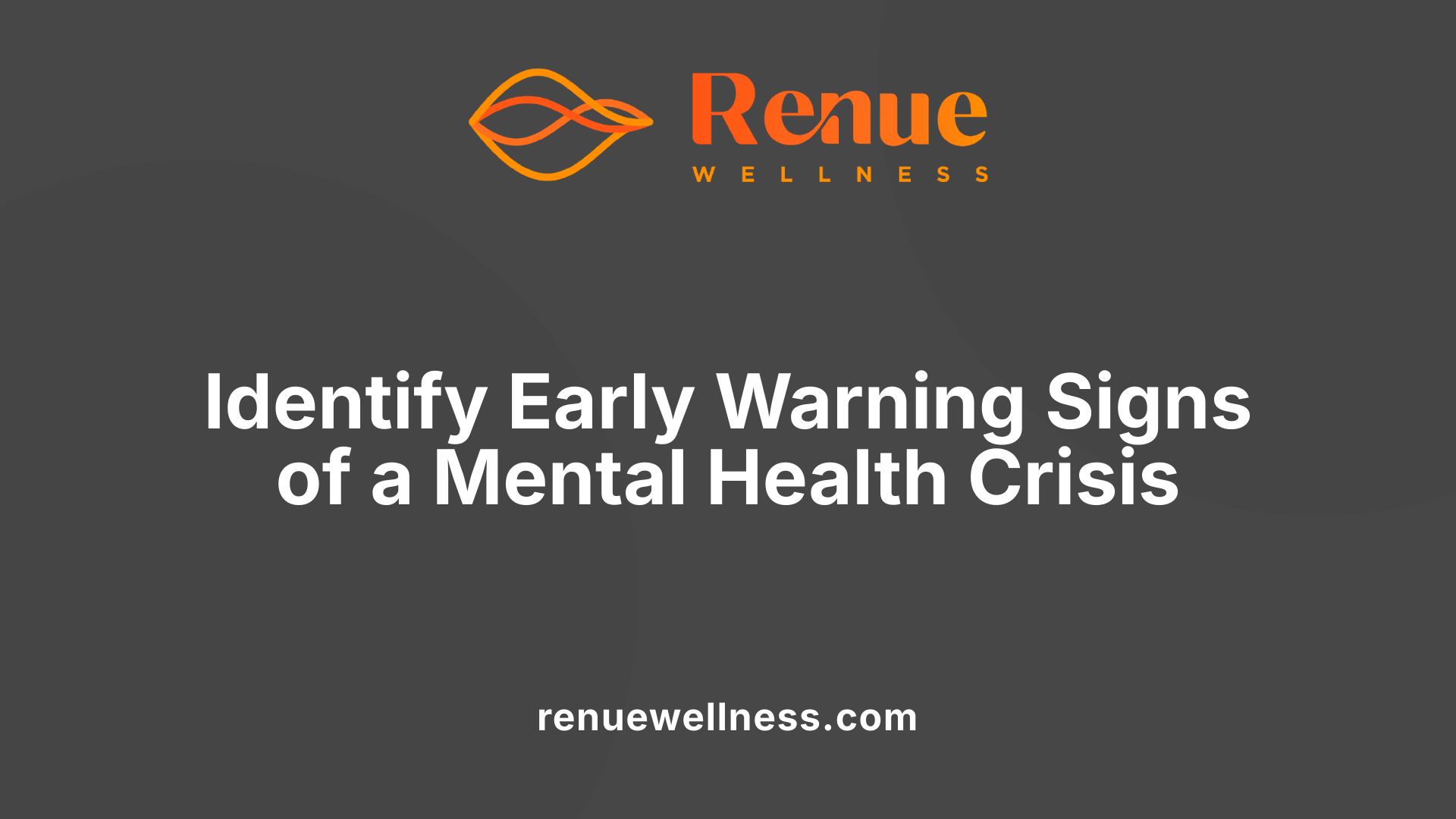 Understanding when someone is experiencing a mental health or emotional crisis can be life-saving. It begins with paying attention to noticeable changes in behavior, mood, and physical health. These warning signs often appear suddenly or gradually over time, signaling that a person may need immediate support.
Understanding when someone is experiencing a mental health or emotional crisis can be life-saving. It begins with paying attention to noticeable changes in behavior, mood, and physical health. These warning signs often appear suddenly or gradually over time, signaling that a person may need immediate support.
Some common behavioral changes include withdrawal from friends, family, or activities they once enjoyed. They may neglect personal hygiene or have sleep disturbances such as insomnia or oversleeping. An increase in agitation, irritability, or mood swings can also be indicators of distress.
Emotional symptoms such as heightened anxiety, feelings of hopelessness, or intense anger are often evident in those heading toward a crisis. Thoughts of self-harm, suicide, or harm towards others are urgent signals that require immediate action. In some cases, individuals may experience delusions or hallucinations, further indicating the severity of their condition.
Physical health can also reflect underlying mental health issues. Persistent headaches, muscle tension, unexplained physical ailments, or a sudden decline in daily functioning—like trouble concentrating or completing routines—are signs that something is wrong.
It's essential to recognize these signs early. If you notice someone displaying these symptoms—especially if they are acting dangerously or expressing thoughts of harming themselves or others—prompt intervention can be crucial. Contacting mental health professionals, emergency services, or crisis hotlines can provide the necessary support and help prevent escalation.
Early recognition and compassionate response not only help stabilize immediate risks but also pave the way for ongoing mental health support and recovery.
Assessing the Severity and Urgency of a Crisis
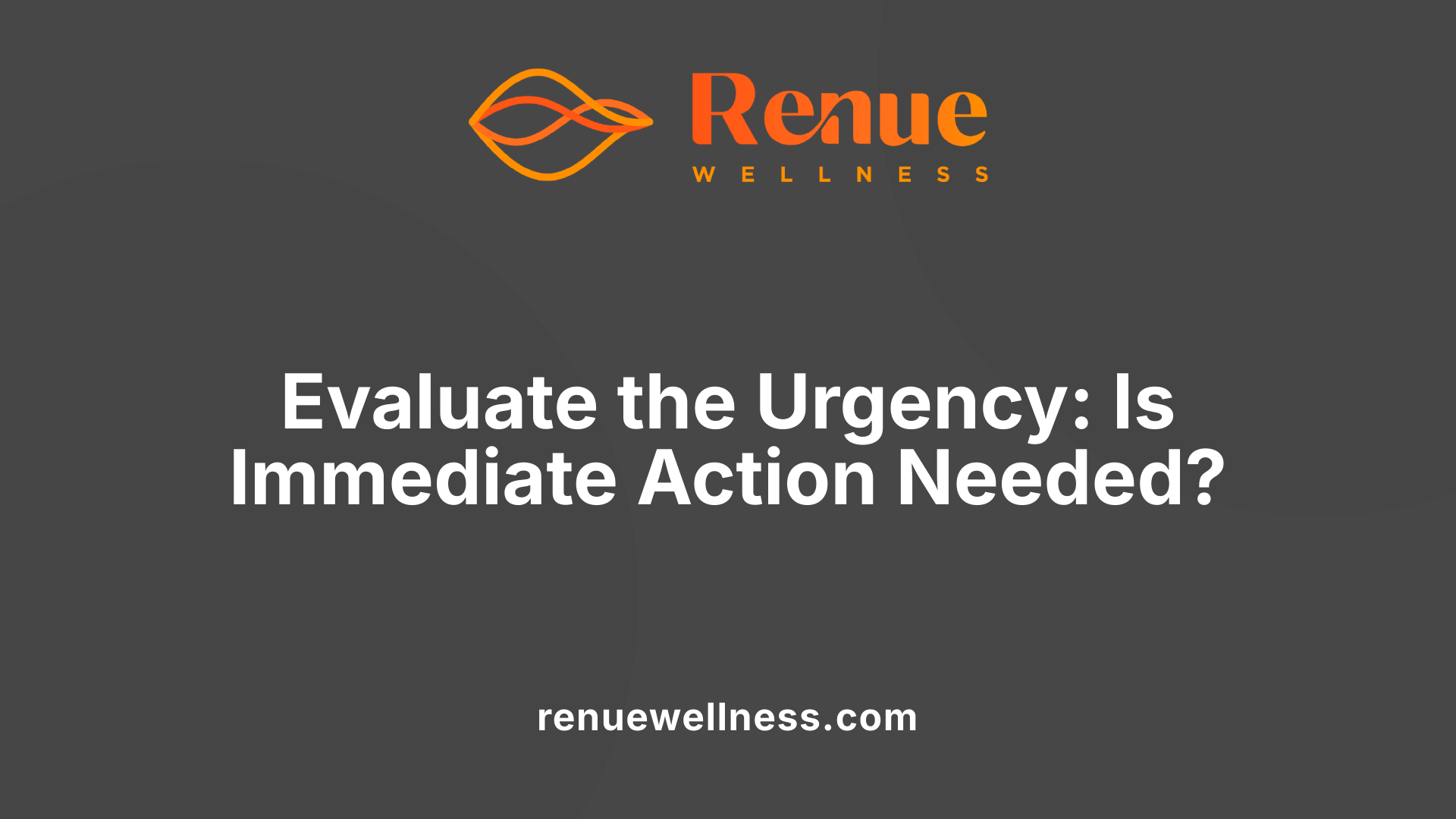
What steps should be taken to assess the severity and urgency of a mental health crisis?
Evaluating how serious a mental health crisis is involves multiple considerations. First, clinicians or support persons need to look for immediate signs of risk, such as thoughts or plans of self-harm or harm towards others. Detecting suicidal ideation, clear intent, or specific methods planned for self-injury highlights a need for urgent intervention.
Understanding the context is also vital. This includes exploring what precipitated the crisis, such as recent loss, trauma, or substance use, and how these factors impact the person's current emotional state. Recognizing signs like extreme agitation, severe depression, hallucinations, or psychosis can help determine the level of danger.
Structured tools like SAFER-R and ACT models offer a structured approach to assessment. These frameworks guide support providers through steps such as stabilizing the situation, building rapport, exploring feelings, and identifying what support is necessary. This comprehensive assessment helps in making informed decisions about the level of care needed.
Determining the level of impairment involves assessing how much the individual’s functioning is affected. This includes their ability to communicate, make decisions, maintain personal safety, and perform daily activities. When these functions are severely compromised or there is a real risk of imminent harm, urgent care or emergency services should be involved.
Deciding whether to seek immediate care depends on symptom severity, safety considerations, and potential danger. For instance, active suicidal plans or threats, violent behavior, or an inability to keep oneself safe demand immediate action, such as calling 911 or visiting an emergency room.
By systematically evaluating these factors, support persons and clinicians can effectively determine when urgent intervention is necessary, helping to prevent escalation and ensure safety. Developing a personalized safety plan is a crucial aspect of ongoing management, allowing support networks to respond promptly when symptoms worsen.
Effective Response Strategies During a Crisis
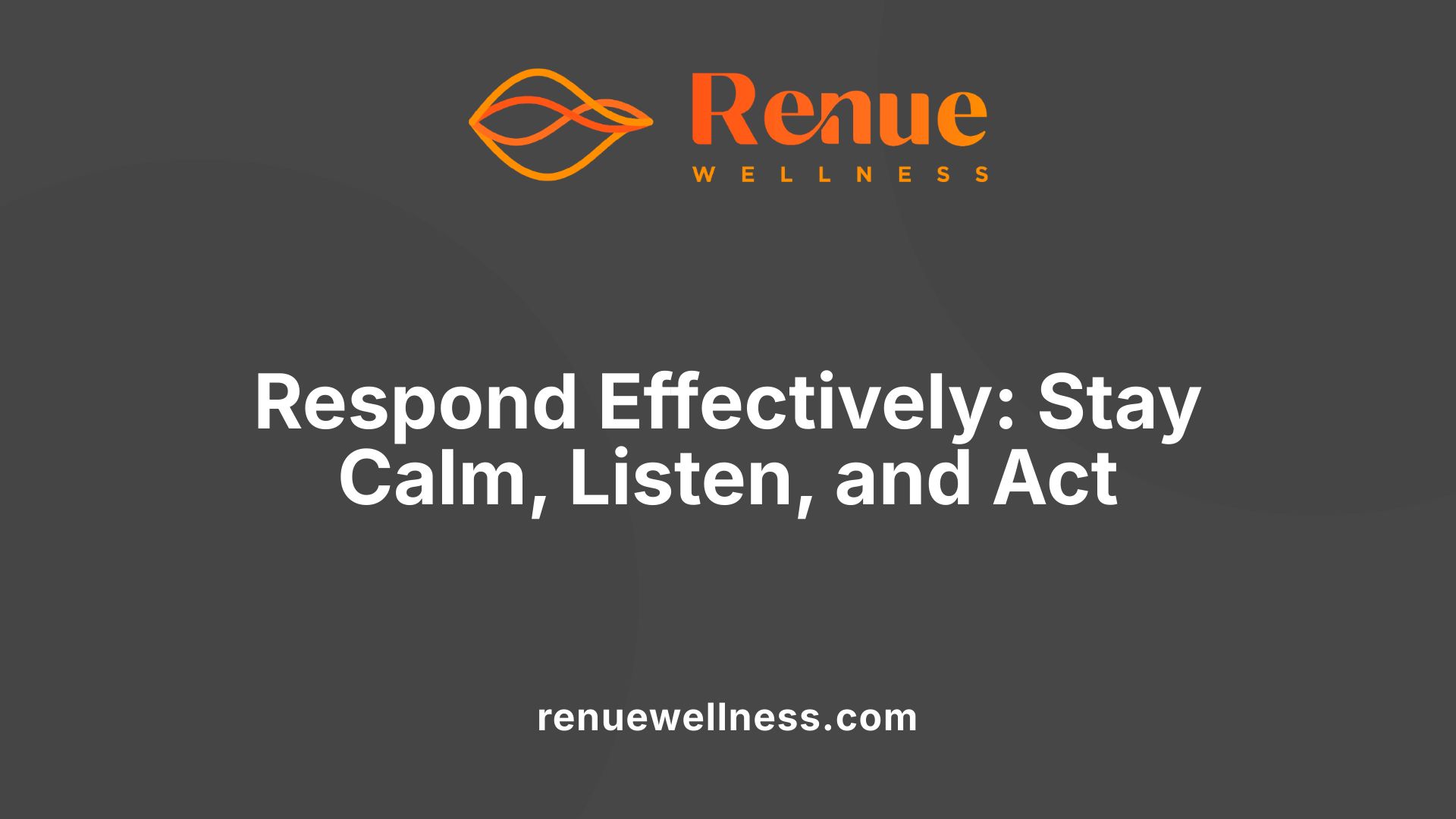
How should one respond during a mental health crisis to ensure safety and proper support?
Responding effectively in a mental health crisis is crucial in ensuring the safety and well-being of the individual involved. It begins with staying calm; your composed demeanor can significantly influence the person's level of distress.
Active listening is a vital component — give the individual your full attention, listen patiently, and validate their feelings without judgment. Offer reassurance by letting them know they are not alone and that help is available. It’s important to assess whether there is an immediate danger, such as threats of harm or attempts to self-injure.
If you suspect urgent risk, do not hesitate to call emergency services by dialing 911. When speaking with responders, specify that the situation is a mental health emergency so they can send the appropriate support, such as a Crisis Intervention Team (CIT) officer.
De-escalation techniques can help stabilize the individual. Caring strategies include guiding them to breathe slowly and deeply, speaking in a gentle, calm tone, and giving them space to regain composure. Encourage the person to focus on grounding techniques—like focusing on their environment or engaging in simple calming activities.
Supporting the person also involves helping them access professional resources—such as the 988 Suicide & Crisis Lifeline or local mental health services. Offer to assist in making calls or navigating available options.
Once the immediate danger subsides, follow up by maintaining contact, respecting their privacy, and supporting ongoing treatment engagement. Assistance in creating personalized safety or crisis plans, like WRAP (Wellness Recovery Action Plan), can be beneficial for future situations.
Overall, the goal is to ensure safety, provide comfort, and facilitate access to professional help, preventing escalation and promoting recovery.
Accessing Professional Help and Support Services
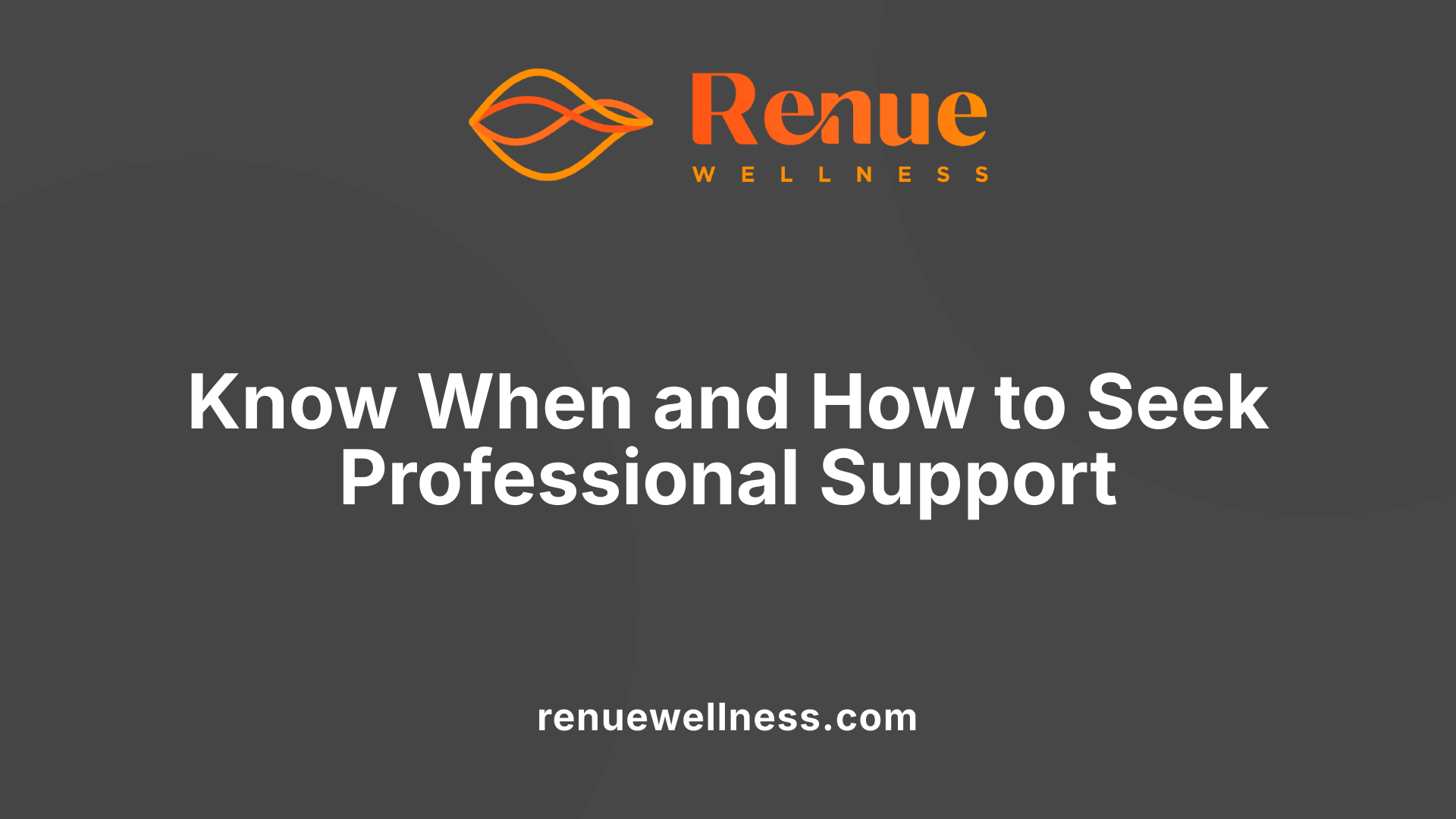
When and how should individuals seek professional help or access crisis support services?
Recognizing when to seek help is vital for maintaining mental health and safety. If symptoms persist or worsen over time, such as increased feelings of hopelessness, drastic mood shifts, or trouble managing daily activities, it is important to consult a mental health professional. Immediate danger, such as suicidal thoughts, threats to harm others, or a person in a psychotic state, requires urgent intervention.
During a mental health crisis, quick access to support can be life-saving. Trained professionals are available through various resources including the 988 Suicide & Crisis Lifeline, Crisis Text Line, and local emergency services like hospitals or mobile crisis teams. Calling or texting 988 connects individuals immediately with crisis counselors who provide confidential support, assess risk, and help develop safety plans.
Crisis services also include visiting emergency rooms for urgent evaluation, or reaching out to community organizations offering short-term stabilization. For ongoing mental health concerns, individuals can reach out to a network of providers listed in directories, through support hotlines, or via primary care providers who can facilitate mental health referrals.
Understanding the array of available services—from crisis stabilization centers to mobile crisis intervention teams—is essential. These services offer tailored responses depending on the severity of the situation, providing in-person support when necessary.
Maintaining ongoing support involves engaging in therapy sessions, connecting with community support groups such as NAMI or peer-led organizations, and utilizing digital resources. Consistent communication with healthcare providers ensures a comprehensive approach to recovery and minimizes the risk of future crises.
Being proactive by recognizing early warning signs and having a crisis plan can make a significant difference. Creating safety plans and knowing how to access help quickly throughout the community fosters resilience and provides reassurance during tough times.
For more details, searches like "When to seek mental health crisis support" can help individuals find resources tailored to their needs, ensuring timely and effective intervention.
Resources and Supporting Systems for Crisis Intervention
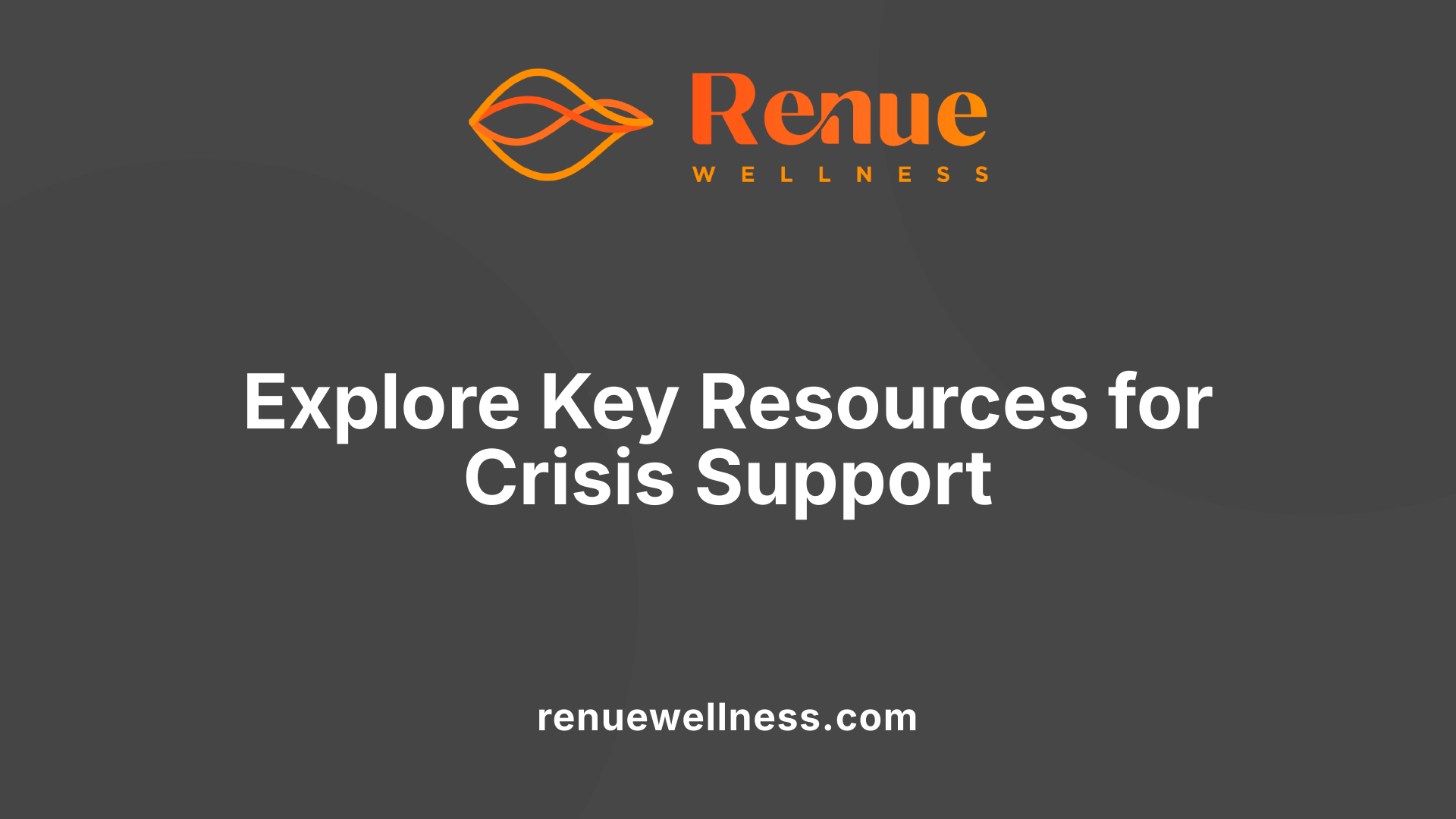
What resources are available for mental health crises, such as hotlines and intervention programs?
Support during mental health emergencies is accessible through various resources that serve diverse needs. The most prominent is the 988 Suicide & Crisis Lifeline, a nationwide service that provides immediate access to trained crisis counselors via call, text, or chat. Users can reach this service by dialing or texting 988, making it a quick and simple way to connect in urgent situations.
In addition to 988, other specialized lines include the Disaster Distress Helpline, which offers emotional support to those affected by disasters, and the Veterans Crisis Line, reachable by pressing "1" after dialing 988 or through texting 838255. Support for children and survivors of abuse is available via the Childhelp National Child Abuse Hotline, while services addressing domestic violence can be accessed through the Michigan Coalition to End Domestic and Sexual Violence.
Local crisis centers, such as community mental health agencies, also play a critical role. These centers often operate 24/7 mobile crisis teams that respond directly to individuals in distress, providing immediate intervention in community settings. Additionally, stabilization centers offer short-term, in-person care to help individuals manage their crises safely.
Federal and state programs bolster these efforts by offering grants, establishing protocols, and coordinating nationwide crisis response systems. These programs aim to ensure equitable access, especially for marginalized populations, including rural communities, youth, veterans, and LGBTQIA2S+ individuals.
Community support is vital for early intervention. Recognizing warning signs early can prevent escalation. Educational resources, online assessments, and community workshops promote awareness and empower individuals and families to seek help before crises worsen.
For ongoing management and recovery, online tools like the Princeton UMatter Wellness Self-Assessment or depression screening tests guide individuals in evaluating their mental health status. These educational resources, along with informative websites from organizations such as NAMI and SAMHSA, provide practical advice, coping strategies, and information about available treatment options.
In life-threatening emergencies, calling 911 remains essential, especially if there is immediate risk of injury or harm. Law enforcement agencies trained in crisis intervention, equipped with Crisis Intervention Teams, can de-escalate dangerous situations safely.
Combining these resources forms a comprehensive support system designed to address mental health crises effectively, fostering recovery and resilience for individuals and communities alike.
Building a Supportive Network for Crisis Management
Handling a mental health crisis involves immediate safety measures, timely recognition of warning signs, access to professional supports, and community involvement. Renue Wellness underscores the importance of preparedness, so developing individual wellness plans, knowing local resources like crisis hotlines (988), and creating safety and recovery plans can greatly enhance resilience. Supporting loved ones, practicing self-care, and advocating for systemic improvements in mental health services foster a compassionate environment where recovery is possible. Remember, crises are often manageable and preventable with the right knowledge, resources, and support systems in place.
References
- What to Do In a Crisis | National Alliance on Mental Illness (NAMI)
- How to help in an emotional crisis
- Compassion Fatigue and Self-care Resources for Crisis Counselors
- Crisis services | Mental Health America
- The San Diego Access & Crisis Line (ACL) 1-888-724-7240
- NAMI HelpLine - National Alliance on Mental Illness (NAMI)
- Behavioral Health Crisis Response System and 988 - Oregon.gov
- Mental Health - Causes, Symptoms, Treatment & Help | SAMHSA
- Wellness Lifelines - American Osteopathic Association
- Caring for Your Mental Health
Recent Posts
Conditions Treated
AnxietyDepressionOCDPTSDPostpartum DepressionPain ManagementSubstance AbuseSuicidal IdeationOur Location


